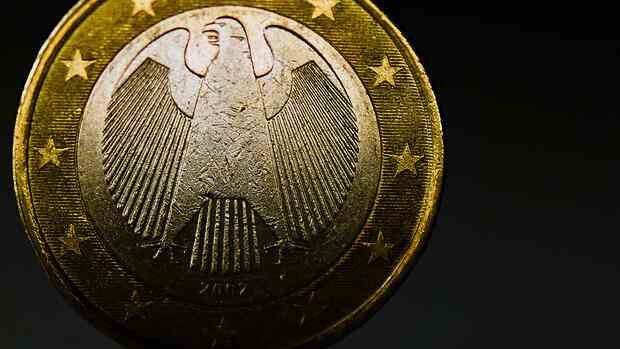17.4 billion euros flowed out of bond funds last year.
(Photo: dpa)
Frankfurt Investors withdrew 4.2 billion euros net from the investment funds, which are primarily aimed at private investors, last year. This was reported by the German fund association BVI, which for the first time did not hold a press conference to present the annual figures on Thursday.
The money withdrawals from these so-called retail funds are largely due to the turbulence on the stock markets and above all to the historically high losses on the bond markets. The bond funds outflowed 17.4 billion euros.
According to BVI President Dirk Degenhardt, investors reacted “level-headed” to the stock market turbulence triggered by the war, rising energy prices and high inflation. “We don’t have high returns, but rather a reluctance to buy,” he comments. In the financial crisis year 2008, for example, private investors withdrew 27 billion euros.
The association describes the development of the fund industry in the very bad stock market year 2022 as “resilient”. The reason for this is the continuing inflow of money from institutional addresses, such as pension funds and insurance companies.
This fresh money for so-called special funds amounted to 67.7 billion euros, with separately managed mandates for such customers. The total assets under management in the industry fell by twelve percent to 3.8 trillion euros in a year-end comparison due to the stock market setbacks.
However, the industry is facing a completely new challenge. EU Finance Commissioner Mairead McGuinness is considering abolishing commission-based investment advice, as is already the practice in some European countries. She wants to make a proposal in early May. That would also affect the funds.
In Germany, for example, banks receive commissions as payment for their consulting services. In the case of the actively managed funds, these are the front-end loads as a one-time fee when purchasing and, above all, parts of the running costs deducted annually.
In the case of equity products, for example, surcharges are often five percent of the investment amount. The ongoing commissions can be around half a percent annually or a little more in the same asset class and with the popular mixed funds. If commissions were abolished, investors would have to pay separately for advice.
>> Read here: Financial sector fears commission ban – “Commission pulls the plug on entire sector”
According to the association, such a ban would lead to a gap in advice, especially for smaller investment amounts. A commission ban introduced in Great Britain ten years ago led to exactly that. Even German savers are hardly willing to pay a separate fee.
Opinion on the initiative is divided. One supporter is Sean Hagerty, Vanguard’s European boss. The second largest asset manager works primarily with inexpensive index funds, i.e. products with no front-end load and very low ongoing fees. Hagerty believes: “A ban would be good for our business and it would significantly reduce costs for investors.”
More: What wealth managers do

